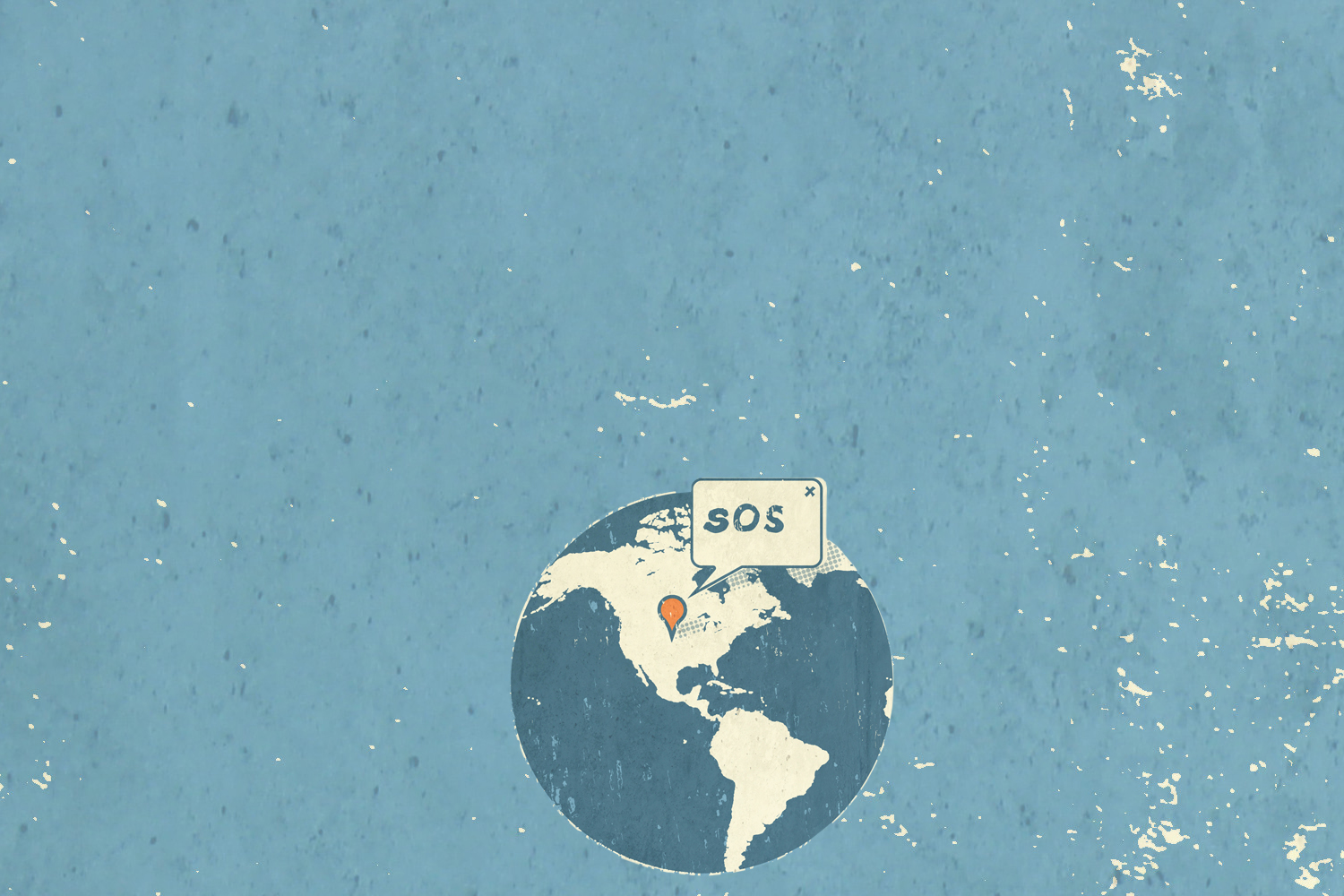Terrorism, climate change, and the hubris of risk analysis
We believe that everything can be measured, planned, and controlled. This is a massive conceptual error.


A free daily email with the biggest news stories of the day – and the best features from TheWeek.com
You are now subscribed
Your newsletter sign-up was successful
Look, I get it. News happens, and you're an online journalist, and you have to produce a #take, one that will get people chattering. But really one of the most embarrassing responses to the Paris terrorist attacks has been those journalists who claimed ISIS was caused by climate change — yes, really, that happened.
But it got me thinking. We think of climate change and terrorism as issues that different political sides focus on. People on the left tend to downplay risks related to terrorism, but believe it's imperative to marshall the full force of government to tackle climate change; people on the right, vice versa.
Anthropogenic climate change is real. But it's not apocalyptic. According to the IPCC — that's the UN's International Panel on Climate Change, which represents the scientific consensus on climate change, for you people sitting at home ready to shout "Denier!" — "a 4 °C increase in temperatures [by 2100] would cause total estimated economic losses of 1-5 percent of global GDP." That's a real cost, but it's also a far cry from the apocalyptic visions that we're so often told, of cities underwater and global dystopia. Since the IPCC realizes that forecasts out to 2100 are tricky, they produce not just a single forecast but a probability distribution of possible outcomes. The kind of apocalyptic scenarios we're told about literally falls outside the probability distribution.
The Week
Escape your echo chamber. Get the facts behind the news, plus analysis from multiple perspectives.

Sign up for The Week's Free Newsletters
From our morning news briefing to a weekly Good News Newsletter, get the best of The Week delivered directly to your inbox.
From our morning news briefing to a weekly Good News Newsletter, get the best of The Week delivered directly to your inbox.
Which doesn't mean they're not possible! On September 10, 2001, most reasonable people would have put hijacked airliners crashing into the World Trade Center and the Pentagon outside any probability distribution of possible outcomes.
There's an important distinction to be made between risk and uncertainty. The difference is simple — risk can be measured, and uncertainty cannot. Very low probability, very high cost events are extremely hard to conceptualize and adequately prepare for — we cannot prepare for every catastrophe, we cannot live under a shadow of remote fears, and yet we know that disasters can and do happen.
If you look at the IPCC's climate projections, none of the proposed plans of carbon abatement, whether via a carbon tax or carbon trading or regulation, make sense. None of them, under any set of reasonable assumptions, provide expected benefits in excess of cost. It doesn't stop progressives pushing them, out of fear of the apocalypse.
And in the aftermath of a terrorist attack, politicians inevitably propose and put forward plans to stop the next terrorist attack that extract tremendous costs in excess of benefits. The theater of airport security alone, in lengthened travel times and costs, has probably cost billions since 2001, and has stopped, as far as we can tell, exactly zero terrorist attacks.
A free daily email with the biggest news stories of the day – and the best features from TheWeek.com
We are not very smart when it comes to dealing with uncertainty.
But this is part of a broader pathology. The word "risk" itself is a relatively recent addition to the English language. It first appeared in the late Renaissance, after the dawn of the Scientific Revolution, when the idea that man should become, in the modern philosopher René Descartes' words, "a master and owner of nature," first got rolling; it has been snowballing ever since. The idea of risk is inseparable from the idea that the future can be not only known — which is itself hubristic — but measured, planned, and controlled.
Now, in many areas of life, this idea has been very useful. But the technological miracles of science have bequeathed a cultural sense that everything can and ought to be controlled — that there is no uncertainty, only risk. In the mid-2000s, clever financiers thought that the swings of the real estate market was a risk that could be managed. With enough financial technique, any downturn could be managed. But the risk turned out to be an uncertainty, and the chain reaction that this conceptual error sparked ended up wrecking the global economy. The risk of terrorism can be managed, if we just defeat every water bottle that gets near a plane. The risk of climate change can be managed, if only we put forward a clever-enough carbon-trading scheme.
Those things may or may not be true. But we will never be able to make rational decisions about them if we don't first confront our psychological urge to want to control and manage every problem.
Pascal-Emmanuel Gobry is a writer and fellow at the Ethics and Public Policy Center. His writing has appeared at Forbes, The Atlantic, First Things, Commentary Magazine, The Daily Beast, The Federalist, Quartz, and other places. He lives in Paris with his beloved wife and daughter.
-
 What are the best investments for beginners?
What are the best investments for beginners?The Explainer Stocks and ETFs and bonds, oh my
-
 What to know before filing your own taxes for the first time
What to know before filing your own taxes for the first timethe explainer Tackle this financial milestone with confidence
-
 The biggest box office flops of the 21st century
The biggest box office flops of the 21st centuryin depth Unnecessary remakes and turgid, expensive CGI-fests highlight this list of these most notorious box-office losers
